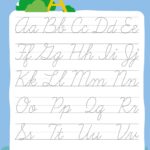Are you disturbed by your child’s apathy in reading? Maybe you have a little child just starting to read. You attempt to foster the learning by reading together. However, each reading session is a battle. Your child shuns it like a loathed vegetable. Or maybe your child can already read, but simply doesn’t want to. They even tell you square in your face, “I hate reading.”
How did it come to this? Why does your child detest reading? Basically, it boils down to one thing: the desire for reading was never sparked or had been quenched. Here are 8 methods to ruin a child’s passion for reading:
- Reading sessions are more like drilling sessions: Don’t question and test children during reading. It’s acceptable to point things out and offer questions to increase thinking but make sure it remains FUN. Don’t make it into a pressured teaching session. Yes, you hope that they learn something from the reading but don’t make it your major purpose. Read to appreciate the narrative. Learning frequently takes place when the instruction is not so clear.
- Television, video, and computer games take center stage: when it comes to leisure and amusement. These significantly distract children from reading. There has to be a limit to these activities if you wish to persuade kids that reading can be interesting too.
- Reading books that are too tough for their reading level: It is highly frustrating for children to open a book and not know how to read many of the words. Where is the delight when you fight to get through a page? Know your child’s reading aptitude and acquire books according to their level.
- Reading sessions evolve into yelling and put-down sessions: Parents need to retain fair expectations of their children. Control frustrations when children don’t succeed as rapidly as you hope they would. Watch your tongue and avoid insulting statements such as “Can’t you recall that term, we just read it,” or “I’ve told you many times previously. What’s wrong with you?”
- Reading books that are of little interest to them: How do children evaluate these books? BORING! To a young boy, reading a book about dinosaurs may be more intriguing than reading a novel about Dick and Jane. Draw your adolescents into reading using literature that they can connect to. I know when I was that age I was game for literature about love, passion, and friendship. Capitalize on your child’s hobbies and interests.Read also: Helicopter Parenting: Striking a Balance for Your Child’s Well-Being
- Forced reading: For older children, occasionally homework comes in the form of prescribed readings. Usually a report needs to be turned in at the conclusion. Although this is done with good intentions, it is simple for a child to consider reading as a task to be done. Very likely too, the specified reading is not of their choice and consequently, not of their taste. Reading in this scenario is like dragging feet in the mud.
- Peer pressure: This is another element that impacts older children. Kids may be harsh with their branding and tormenting. The labels “nerds” and “geeks” are generally tossed at persons who delight in literature. Your child may very well choose to avoid reading merely to fit in and be one of the “cool kids.”
- Limiting what children read: Imagine if you liked sci-fi literature but were told you could only read classics. What a bummer it would be for you, right? Be receptive to what your child wants to read. You may believe your child has moved beyond picture books but he wants it nevertheless. Let him. Or you may assume reading comic books has less educational value than reading widely renowned works. Remember, it’s a book in their hands anyway. So, whether it be fiction, non-fiction, picture books, comic books, periodicals, etc… be supportive.
You want to get your child reading, you have to first demonstrate to them it is joyful and delightful. Don’t press too hard to get your child to learn to read or read to learn. Only when there is a passion for reading can the learning begin.
Read also: Fun and Fitness Combined: Animal Exercises for Kids





